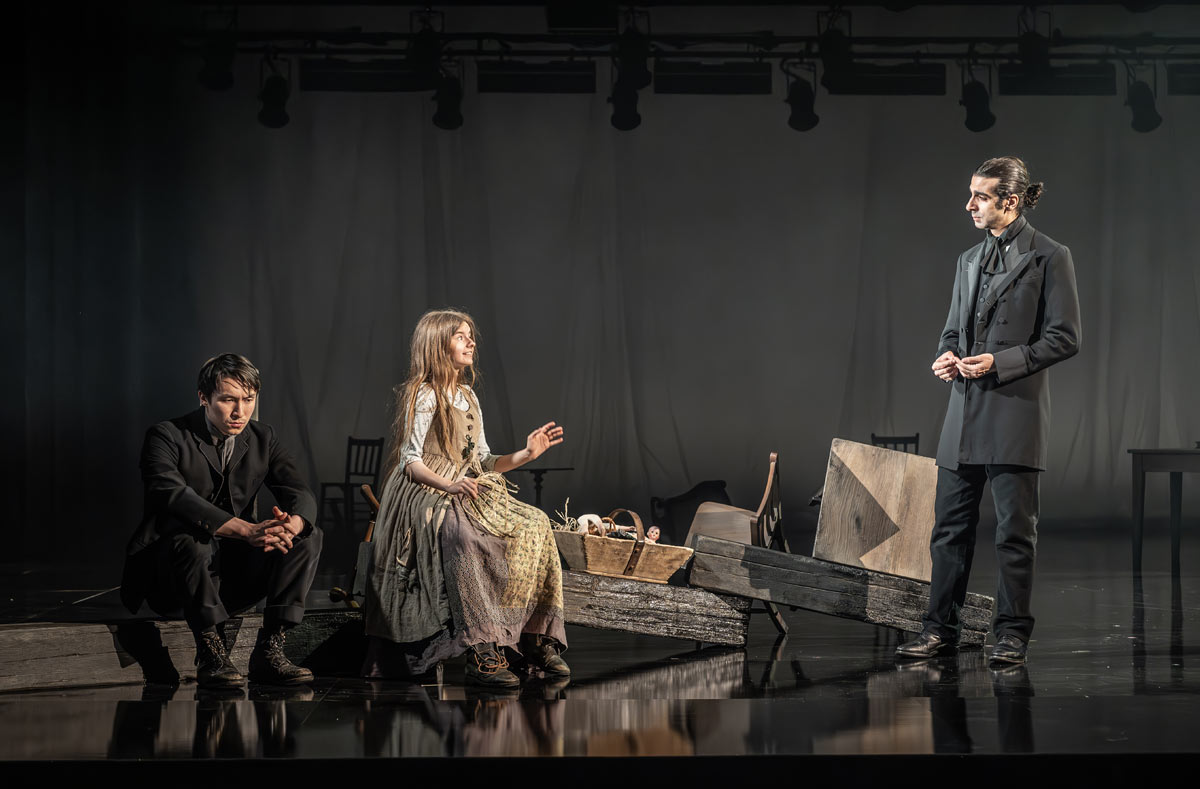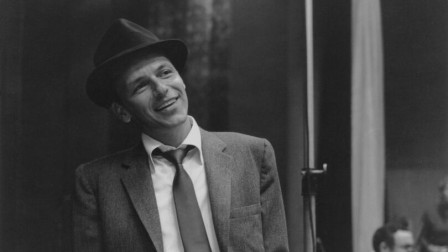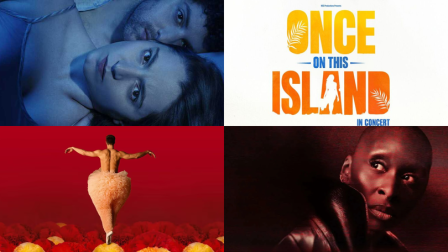Review: LONDON TIDE at National Lyttelton
On a stage which is pre-set to look like the backstage of any modern theatre, complete with lowered lighting-rig and blacked-out floors, the current production playing at the Lyttelton space, begins very much as it ends. During the intervening hours however, and despite the minimal set, the stage is a very busy place indeed, reflective of the Dickensian period’s hustle and bustle and especially the districts and people who live closest to the river.
 Brandon Grace (Charley Hexam), Ellie-May Sheridan (Jenny Wren) and Scott Karim (Bradley Headstone) in London Tide at the National Theatre. © Marc Brenner.
Brandon Grace (Charley Hexam), Ellie-May Sheridan (Jenny Wren) and Scott Karim (Bradley Headstone) in London Tide at the National Theatre. © Marc Brenner.
As the production of LONDON TIDE begins, the huge lighting rig mellifluously rises, undulating in waves like the Thames it emulates. Suddenly panels open at the footlights and rat-like figures crawl up and out from the subterranean depths and onto the stage — only these rats, are the societal underbelly, the innkeepers wharfmen and other Thames folk, the citizens whose lives and fortunes are governed by the ebb and flow of the tides and the spoils which can be gleaned from its waters and banks.
Directed by Ian Rickson, Ben Power’s grimy and sinuous adaptation of Charles Dickens’ Our Mutual Friend could have been just another revival, but its modernist approach to the set design is supplemented still further by a small on-stage band who provide much of the audible commentary to life lived on and by the waterway. They also — perhaps rather surprisingly, accompany the cast in their delivery of a raft of songs written for the piece by PJ Harvey. For many (if not most), Harvey would not be an obvious choice of singer/songwriter with whom to collaborate when producing a musical theatre offering, but that’s the beauty of having a subsidised National Theatre, where unusual and not obviously commercial work can be realised. It is certainly the element which is most likely to divide opinion.
The story of a tyrant who dies leaving a will which stipulates his estranged son is to be the beneficiary of his estate so long as he marries a certain girl, flits back and forth between the haves and have nots, as is typical in Dickens’ works and the cast does its level best to circumvent the usual clichés and imbue a visceral freshness. However, the oily baddies and matronly fuss-pots are all present and accounted for and the entire cast acquits itself well.
Bella Maclean plays Bella Wilfer, Tom Mothersdale plays John Rokesmith, Ami Tredrea plays Lizzie Hexam, Peter Wight plays Noddy Boffin, Jake Wood is Gaffer Hexam, Jamal Westman is Eugene Wrayburn, Scott Karim is the manipulative and deceiving villain Bradley Headstone, Brandon Grace is Charley Hexam and Crystal Condie is Miss Potterson.
Of the entire cast however, one special mention must go to Ellie-May Sheridan who as Jenny Wren brings down the house with her matter-of-fact delivery of line after line of pure gold, wittering about her dolls one minute, then summing-up the relationship which has existed between men and women down the ages, in a single swingeing observation. Congrats to the entire company for managing to pull-off an extremely complicated piece of theatre and long may the National Theatre remain a home where such efforts are possible.
Latest News

 Cast announced for new British musical 'Pride'
20 January 2026 at 10:27
Cast announced for new British musical 'Pride'
20 January 2026 at 10:27

 West End premiere of Sinatra The Musical planned for this summer
20 January 2026 at 10:05
West End premiere of Sinatra The Musical planned for this summer
20 January 2026 at 10:05

 New London Theatre shows to look out for in February 2026
19 January 2026 at 16:09
New London Theatre shows to look out for in February 2026
19 January 2026 at 16:09

 Cast announced for major London revival of The Holy Rosenbergs
19 January 2026 at 09:00
Cast announced for major London revival of The Holy Rosenbergs
19 January 2026 at 09:00
